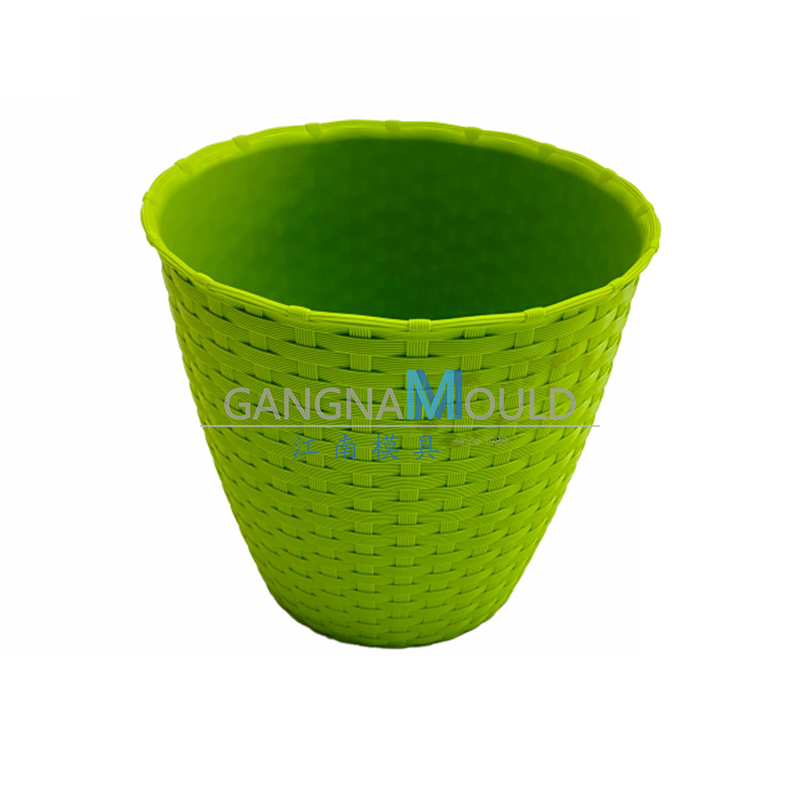Plastic Horticultural Patio Planter Mould Supporting Custom Planter Designs
Gardening and outdoor landscaping have increasingly become important for both residential and commercial spaces. The Plastic Horticultural Patio Planter Mould is an essential tool in producing high-quality planters that are durable, lightweight, and suitable for various horticultural applications. These molds enable manufacturers to create planters that combine functionality with aesthetic appeal, providing gardeners and landscapers with reliable solutions for growing plants, flowers, and small shrubs.
The plastic horticultural patio planter mould allows for the consistent production of planters in different shapes and sizes. From small, decorative containers for balconies to larger planters for patios and garden areas, the mold ensures uniformity in design and dimensions. Consistency is crucial for stackability, ease of transport, and integration with different outdoor spaces. Some molds are also designed to produce planters with drainage holes or modular stacking features, enhancing practicality for both indoor and outdoor gardening.
Material selection is a key factor when using these molds. Polypropylene and high-density polyethylene are commonly chosen for their durability, impact resistance, and resistance to weather conditions. These materials ensure that planters can withstand exposure to sunlight, rain, and temperature fluctuations without cracking or fading. The lightweight nature of plastic planters also makes them easier to move and reposition, providing flexibility in garden and patio design.
The design of the plastic horticultural patio planter mould emphasizes precision and detail. Smooth surfaces, reinforced edges, and tapered shapes are achievable through advanced injection molding techniques. These features not only enhance the structural strength of the planters but also contribute to a visually appealing finish. Manufacturers can also customize molds to include decorative patterns or textures, offering unique planter designs that enhance the appearance of outdoor spaces.
Functionality is another significant benefit of planters produced through these molds. Properly designed planters allow for adequate drainage and aeration, supporting healthy root development and plant growth. Planters made with high-quality molds are also easy to clean and maintain, making them practical for everyday use. Their durability ensures long-term usability, reducing the need for frequent replacements.
From a production perspective, the plastic horticultural patio planter mould provides efficiency and reliability. Well-engineered molds reduce cycle times, small material waste, and produce consistent results, which is important for large-scale manufacturing. Maintenance of the mold, including cleaning, inspection, and proper storage, is crucial to ensure continued high-quality production and longevity.
The versatility of these molds allows manufacturers to cater to different market needs. Some molds focus on modern, small planter designs, while others support traditional or decorative styles. This adaptability makes plastic horticultural patio planters suitable for a wide range of customers, from homeowners and urban gardeners to landscapers and commercial property managers.
Sustainability is also an important consideration. Many plastic planters produced from these molds are recyclable, and their long lifespan reduces environmental impact compared to single-use alternatives. By combining durable materials, efficient production, and reusable designs, these molds support eco-conscious gardening practices.
In conclusion, the Plastic Horticultural Patio Planter Mould is a valuable tool in creating functional, durable, and visually appealing planters for modern outdoor gardening. Its versatility, efficiency, and ability to produce consistent high-quality products make it essential for manufacturers and gardeners alike.




 English
English русский
русский Español
Español Français
Français عربى
عربى 简体中文
简体中文




